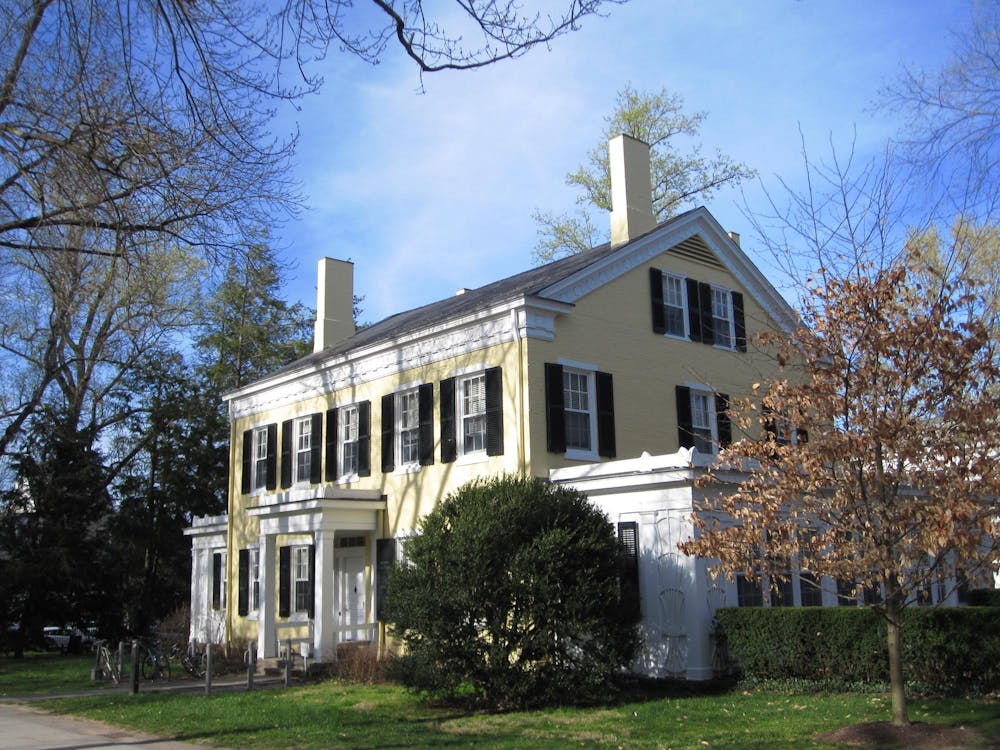What began as an isolated reaction against the University of Michigan's race-based admissions policy has resulted in a flurry of debate and policy change at academic institutions throughout the country, and at Princeton.
White applicants rejected from Michigan brought a suit against the university last year claiming they were denied equal protection rights. Michigan's undergraduate program uses a points-based admission policy that assigns a numerical benefit for minority status. The law school tries to maintain a certain level of diversity from year to year.
The case made it to the Supreme Court's chambers April 2, but not before many Ivy League university presidents weighed in on the issue.
Friend of the court
In February, the University signed a friend of the court brief filed by Havard University urging the high court to uphold Michigan's policy.
The brief emphasizes the benefits of the decision in the 1978 case Regents of the University of California v. Bakke, which let selective universities consider race and ethnicity favorably in admissions.
The brief does not, however, fully endorse the University of Michigan's undergraduate admission policy, which assigns a numerical advantage for racial minority status, Vice President of Public Affairs Bob Durkee '69 said after the brief was filed.
"What we really wanted to comment on in the case . . . was to support the principle underlying the Bakke decision, which was that race is one of many characteristics of an individual that can be taken into account in college admissions," University President Shirley Tilghman said then.
Brown University, the University of Chicago, Dartmouth College, Duke University, the University of Pennsylvania and Yale University also signed the brief.
Because the cases involve a public university, the ruling would not directly apply to private institutions, said Thomas Merrill, a visiting law professor at the University of Chicago and former deputy solicitor general in former President George Bush's administration.
However, as the amicus brief states, because Title VI of the 1964 Civil Rights Act forbids institutions receiving federal funding to engage in racial "discrimination," the decision could have a bearing on private universities like the University, which receive federal funds.
University policy changes
Even before filing the brief, the University began taking steps to ensure it does not end up on the wrong side of the decision.
A race-based summer program at the University's Wilson School was discontinued Feb. 5 because University lawyers felt the program's admission policy could not be defended in court.

"If you are committed to diversity, what you don't want to do is to defend a program that would put [diversity] at risk," Vice President for Communications Robert Durkee '69 said of the decision.
Other University programs were scrutinized as well.
"We have been examining other Princeton programs to see if any other is not likely to meet the legal test of the Michigan case," Vice President for Campus Life Janet Dickerson said in an email at the time.
Tilghman's 19 senior cabinet administrators were asked to conduct a thorough inventory within their own departments for courses and programs that may be legally objectionable.
No problems have been reported so far.
Programs and scholarships at other institutions, including the Massachussetts Institute of Technology, were also affected.
Campus dialogue
Debate among Princeton students continued throughout the administrative changes, as campus groups took the issue to the students.
The USG, which wanted to take a stand on affirmative action in admissions, decided, however, that it lacked the mandate from the students to take a political position.
It sent the issue to a student referendum early April, which found that roughly 65 percent of Princeton students supported the pro-affirmative action resolution.
As a result, the USG's delegation to the Ivy Council, which met April 6, voted in favor of the Council's resolution. It passed unanimously.
The council had student delegates from all Ivy League schools except Harvard.
Other campus groups brought students to the issue. The Black Student Union organized a trip for some 40 students to Washington, D.C. to participate in a national march in support of affirmative action.
"The BSU is all about dialogue, talking to groups and attempting to dispel the negative connotations around the term affirmative action that has been perpetuated by the media and other groups," said Brittani Kirkpatrick '05, president of the BSU.
'Prince' senior writers Julie Kestenman, Kathy Li and Daniel Lipsky-Karasz and staff writer Alyson Zureick contributed to this report.







